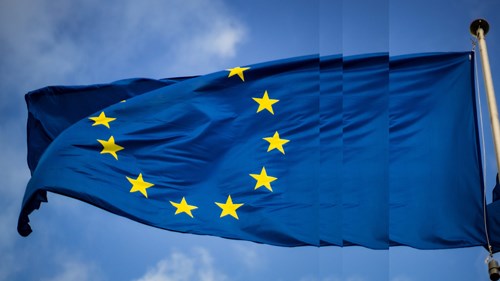Hungary: New consumer protection rules on digital content and digital services
The new European consumer protection rules for digital content and services, set out in EU Directives 2019/770 and 2019/771, were implemented in Hungary in due time – in contrast to some CEE countries where they have yet to be implemented. Most of the provisions of these directives came into force on 1 January 2022.
Hungarian implementation
The Hungarian legislator passed a new law – Government Decree No. 373/2021 – which consists primarily of the provisions of the EU directives (770/2019 and 771/2019/EU). However, some provisions amend existing laws, and existing consumer protection regulations continue to apply.
Accordingly, all of the following laws apply to providing digital services or digital content and require careful consideration:
- Government Decree no. 373/2021 (“Government Decree”);
- Act CLV of 1997 on consumer protection;
- Government Decree no. 151/2003;
- Government Decree no. 45/2014;
- provisions of Act V of 2013 on the Civil Code regarding terms and conditions and warranty;
- provisions of Act CVIII of 2001 on E-Commerce.
Below we highlight some of the changes:
Digital content and digital services as legal terms
The new regulations introduced the terms of:
- digital content (in Hungarian “digitális tartalom”) and digital services (in Hungarian “digitális szolgáltatás”), which include video and audio files, digital games, e-books, software, hosting services and social media, and
- “goods with digital elements” (in Hungarian “digitális elemeket tartalmzó áru”), for example smart TVs with streaming subscriptions and cars with navigation systems.
Stricter warranty provisions
The new law includes important changes to conformity requirements. It is no longer sufficient for digital content and digital services to conform to the contractually agreed description, quantity and quality. Now, compliance with “objective conformity requirements” is necessary, which means that digital content and services
- must be fit for the purposes for which digital content or digital services of the same type would normally be used; and
- must possess the qualities and performance features, including in relation to functionality, compatibility, accessibility, continuity and security, that are normal for digital content or digital services of the same type and which the consumer may reasonably expect.
This means that providers of digital content and services must monitor their competitors’ products. In addition, it will be much more difficult for providers to prove conformity in court proceedings and for judges to define the objective standard for conformity.
It is also a significant change that any lack of conformity detected by a consumer within one year, instead of six months, as of the date of performance is to be deemed to have existed at the time of performance. This also means that, during this one-year period, the burden of proof is placed on the provider.
Information obligation
A provider must inform its consumers of updates that are necessary to maintain the conformity of the goods and services with which it provides them. Consumers must be given clear and comprehensive information regarding any modifications made to the digital content or digital service in order to maintain conformity during the time set out in the contract.
Payment with personal data
The new provisions explicitly state that the stricter warranty provisions and information obligations apply even if – in lieu of payment – the consumer gives the provider personal data which can also be also used for purposes other than performing the contract. This constitutes recognition of the concept of payment with personal data. However, the new provisions leave some questions as to whether the information regarding the 14-day rescission right is applicable to contracts in which a consumer “pays” with personal data.









